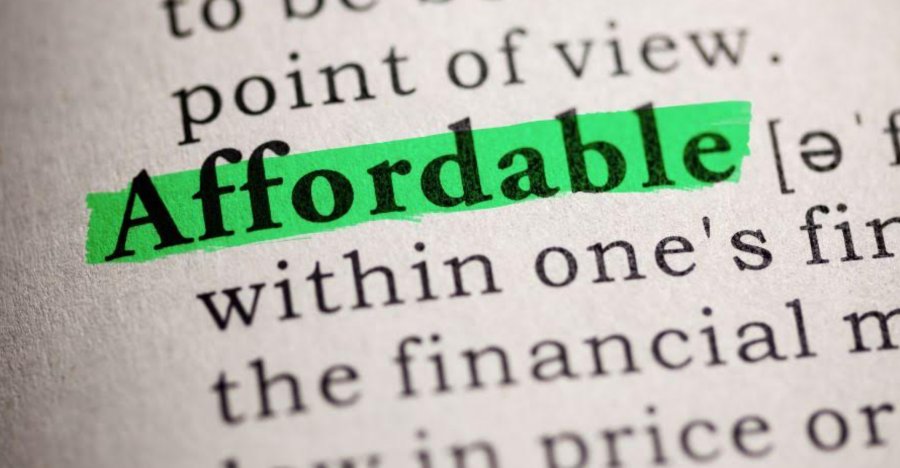The Role of Affordability Checks in Responsible Lending

Lending money is not just about handing over cash; it’s about ensuring borrowers can realistically repay what they owe. The principle of responsible lending has become increasingly important, especially in a world where personal debt levels are rising.
Central to this is the affordability check, a process that protects both borrowers and lenders from the risks of unmanageable debt. This blog explores why affordability checks are vital, how they work, and the benefits they offer everyone involved in the lending process.
What are Affordability Checks?
Affordability checks are assessments carried out by lenders before approving loans for bad credit or any other type of borrowing. The main goal is to ensure the borrower can comfortably meet repayments without falling into financial hardship.
These checks typically examine your income, regular expenses, existing debts, and sometimes even your employment status. By reviewing this information, lenders aim to lend responsibly and avoid creating situations where repayments would strain the borrower’s finances.
This step is crucial for both financial wellbeing and regulatory compliance.
Why Affordability Checks Matter
Affordability checks serve as a vital safeguard for borrowers. By thoroughly assessing an applicant’s ability to repay, lenders help prevent people from taking on more debt than they can manage. This approach reduces the risk of missed payments, defaults, and further financial difficulties.
For lenders, these checks are equally important. They help protect against losses caused by bad debts, maintaining the overall health of the lending business. Ultimately, affordability checks build trust in the lending process and encourage responsible borrowing habits.
The Process of Conducting Affordability Checks
The process usually begins when you submit a loan application. Lenders ask for details about your income, monthly expenses, and any existing debts. Sometimes, they may require supporting documents like payslips, bank statements, or proof of benefits.
Using this information, the lender will calculate your disposable income and decide if you can realistically afford the new loan payments. This step-by-step review ensures that lending decisions are based on real financial circumstances, not just a credit score.
The Role of Credit Scores vs. Affordability Checks
While credit scores play a role in lending decisions, affordability checks provide a more detailed and accurate picture of your financial situation. A good credit score can help, but it doesn’t always reflect your current ability to manage new repayments.
Affordability checks look beyond your credit history to examine real-time income and outgoings. This means even people with less-than-perfect credit have a fair chance to borrow, as long as they can show they can afford the repayments.
Regulatory Requirements and Best Practices
In the UK, the Financial Conduct Authority (FCA) requires lenders to carry out affordability checks on all consumer credit applications. This is to protect consumers from taking on unsustainable debt and to promote transparency in the lending industry.
Best practices include reviewing up-to-date financial information, being transparent about costs, and providing clear information to borrowers about what they can afford. Responsible lenders also encourage borrowers to ask questions and seek help if they are unsure about any aspect of the loan.
Benefits for Borrowers
Affordability checks may seem like an extra hurdle, but they offer real benefits. By thoroughly assessing your finances before lending, you’re less likely to end up with unmanageable debt or face the stress of missed payments.
This process encourages better budgeting and helps borrowers understand the true cost of a loan. In the long run, affordability checks support financial stability and help people make more informed borrowing decisions.
Benefits for Lenders
For lenders, conducting thorough affordability checks reduces the risk of loan defaults and bad debts. This helps maintain a healthy loan book and builds a reputation for responsible lending.
It also ensures compliance with FCA rules, which is essential for staying in business and maintaining public trust. By putting customer wellbeing at the heart of lending decisions, lenders foster stronger, more positive relationships with their clients.
Common Myths About Affordability Checks
One common myth is that affordability checks make it harder to get approved for a loan. In reality, these checks simply ensure that you are not borrowing more than you can handle.
Another misconception is that they are only for people with poor credit. In fact, affordability checks apply to all borrowers, regardless of their credit history. Their main aim is to create fairer, safer lending for everyone.
Final Words
Affordability checks are a cornerstone of responsible lending, protecting both borrowers and lenders from the pitfalls of unmanageable debt. While they may add a step to the application process, they deliver real value by ensuring loans are suitable and sustainable. Embracing this practice leads to better financial health, greater transparency, and more positive lending experiences all round.
FAQs
Do affordability checks affect my credit score?
No, affordability checks usually do not impact your credit score. They are internal assessments carried out by lenders to ensure you can afford the repayments.
Are affordability checks required for all types of loans?
Yes, in the UK, the FCA requires lenders to conduct affordability checks for all regulated credit products to ensure responsible lending.
Can I still get a loan if I have a low income?
It depends on your overall financial situation. If you can demonstrate you can afford repayments, even with a lower income, you may still be approved.
What documents will I need for an affordability check?
You may be asked for recent payslips, bank statements, or proof of income to help the lender assess your financial position accurately.





